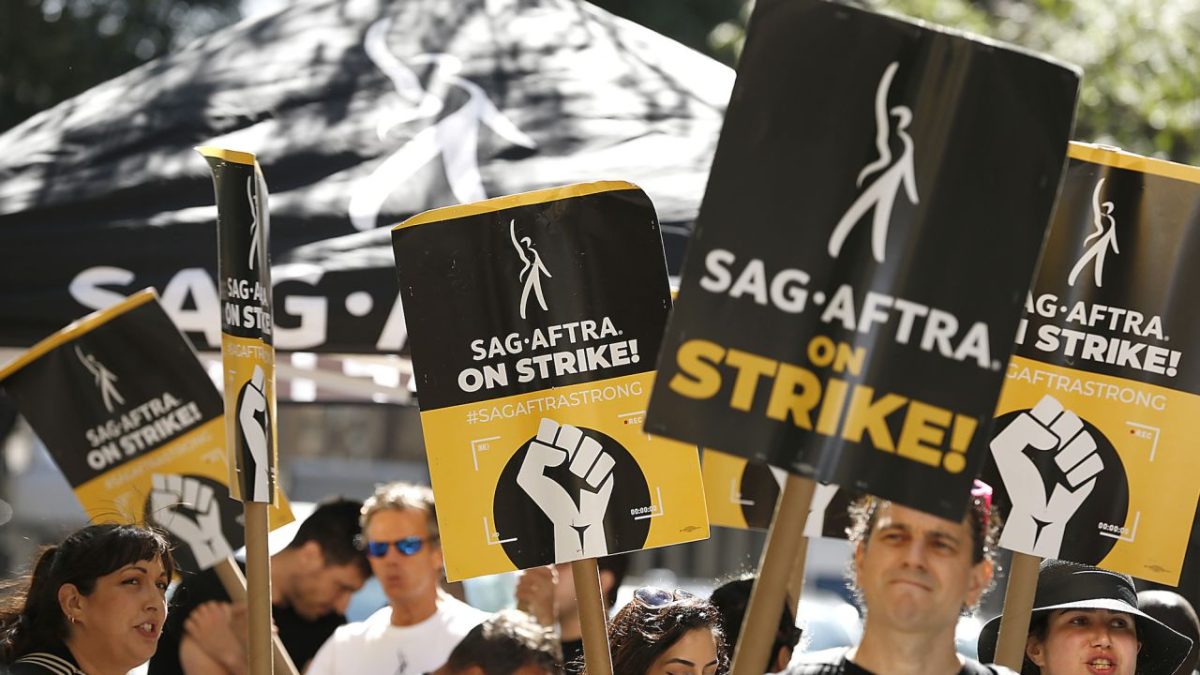Marking a pivotal moment in the realm of entertainment, the voices of Hollywood’s most esteemed performance union have gone on strike.
Spearheaded by the Screen Actors Guild-American Federation of Television and Radio Artists, or SAG-AFTRA, an unfaltering series of strikes have emerged for the first time in 63 years in pursuit of equitable pay and working conditions for its esteemed members in an effort to underscore the growing disparities of the film industry.
The union of SAG-AFTRA, which is comprised of 160,000 members varying from background actors to A-list names such as Margot Robbie and Robert Downey Jr, was abruptly forbidden from proceeding with productions and promoting work for major studios and streaming platforms. Tensions between SAG-AFTRA and the Alliance of Motion Picture and Television Producers (AMPTP) arose over labor disputes and unbalanced pay amidst rising inflation, ultimately inflaming the strike’s inception in July 2023.
In effect, the strike coincides with the Writers Guild of America (WGA) strike which unfolded in May and gave rise to the 11,000 members who walked off film and TV sets to protest inequitable labor, usage of artificial intelligence for screenplay composition, and demand for equal pay within the realm of screenwriting.
Since its initiation, the SAG-AFTRA strike has garnered the attention and support of some of the biggest names in Hollywood, such as actor Mark Ruffalo and director Olivia Wilde after they joined the strike’s picket lines. Additionally, the star-studded cast of director Christopher Nolan’s summer blockbuster Oppenheimer walked out of the film’s London premiere out of solidarity with the union. Amongst these names were Florence Pugh, Cillian Murphy, Emily Blunt, and Matt Damon.
So, what’s next for the strike?
As the strike persists, critics have expressed concerns about its potential impact on upcoming film festivals, releases, and award show campaigns. The film industry has already begun to feel the momentum of the strike as release dates for highly anticipated films slated to premiere this year, such as Challengers and Dune: Part Two, have been pushed to 2024 due to the inability to promote on publicity tours.
Until the union’s demands for general wage increases, protection against artificial intelligence usage on set and in writer’s rooms, and boosts for successful streaming programs are met, Hollywood will remain “shut down.”
Supporters of the strike can show their support at home by amplifying the movement through social media and by making donations to the Entertainment Community Fund, an organization that supports crew members who are out of work.
As this historic forge for the eradication of injustices and inequality within the film industry subsists, we, as audience members, can only hope that its impact is the catalyst for change and equitability. And that the productions of Euphoria and Stranger Things aren’t delayed again.



